Tradition & Us
Philosophy, Tradition and History
Our Philosophy
In today's high-tech world, time has become something very precious.
Stress, urgency and frenzied activity accompany us far too often throughout everyday life. We have deliberately tried to slow down this spiral a little - at a place high above the valley, where the clocks tick more contemplatively. What the landscape, nature and locals carry within themselves here, is mirrored in the architecture and essence of the Naturdorf Oberkühnreit.
Here, you can take time for the beautiful sides of life, for family and for the kids and last but not least, for yourself.
Here in the village, you can leave daily life far behind you, regain strength and invigorate your mind, see what’s important and let the insignificant remain insignificant!
Tradition
Our family has been based in Oberpinzgau for generations. Drawing from the old knowledge of our ancestors and preserving their tradition is therefore something very important for us. Here, we want to pass on a little piece of what is closely connected to this wonderful mountain region and its people. Perhaps you will also enjoy it as much as we do! . .
Timber Felling (from an old record)
1. Timber, wood for tools and firewood The firewood should be felled during the first quarter of the growing moon.
2. In the first four days of May, logged wood does not decay and will not be worm-eaten.
3. If you fell wood on the last two holidays in March, and make trunks and boxes, no worms and moths will get into it.
4. If you fell wood in the evening on the Margarethen (26.08), it won't crack.
5. If you fell wood in the receiving moon, under the sign of the fish, it won't crack and also won't shrink.
6. If you fell wood on the last two days of December and the first days of January, the worms won't eat it; the older it gets, the harder it gets.
7. If you fell wood when the moon is smallest before it gets stronger, you can process it green, it won't crack and won't shrink.
8. If you clear a tree, drill a hole to the core on the 1st August, then it will dry up.
9. If you fell wood on the three days of Pauli Bekehr (Conversion of St. Paul the Apostle, 25.01), Valentine’s Day (14.02) and the Day of St. Aegidius (01.09), this will not decay on the Day of Judgment.
10. The 31st January and 2nd February are ill-fated days.
11. Wood that has been felled in the last few days of February during the waning moon, will decay, including the roots. If you uproot perennials and weeds three days before the 21st June in the morning, they will not grow back.
12. The 25th March or the 29th June and the 31st December are odd days. Wood does not shrink on these days.
13. On the last days of December, on the 1st January and the 1st March, and on Fridays after sunset, wood will not snap or tear out, felled wood on the 1st March will resist fire.
Alpine Farming
Already during the 5th Century before Christ, the natural pastures above the tree line were used for agriculture.
Through slash-and-burn deforestation, people extended the grazing land and the inhabitants came down from above into the middle mountain regions. At that time, the valleys were mostly trackless, buried by mud flow, overgrown and marshy. The valley floors, with the exception of the debris cone, had to be made accessible through tedious work for centuries.
In the 7th Century before Christ, the construction and expansion of alpine farming was already beginning in our region.
In the Late Middle Ages (14th and 15th Century) alpine farming experienced a boom. On the Pinzgau alpine farms and Schwaighöfen (small-scale alpine dairy farms), people were mainly producing cheese, which was produced as interest for the spiritual and secular landlords and served to them.
In the second half of the 20th Century, alpine farming fell sharply. The reasons for this were relatively low profitability and a high workload.
Today, livestock farming on the alpine pastures has regained importance as a system that sustained the cultural landscape. In addition to this, our alpine pastures are also a popular excursion destination as a hiking goal for nature lovers and peace seekers.


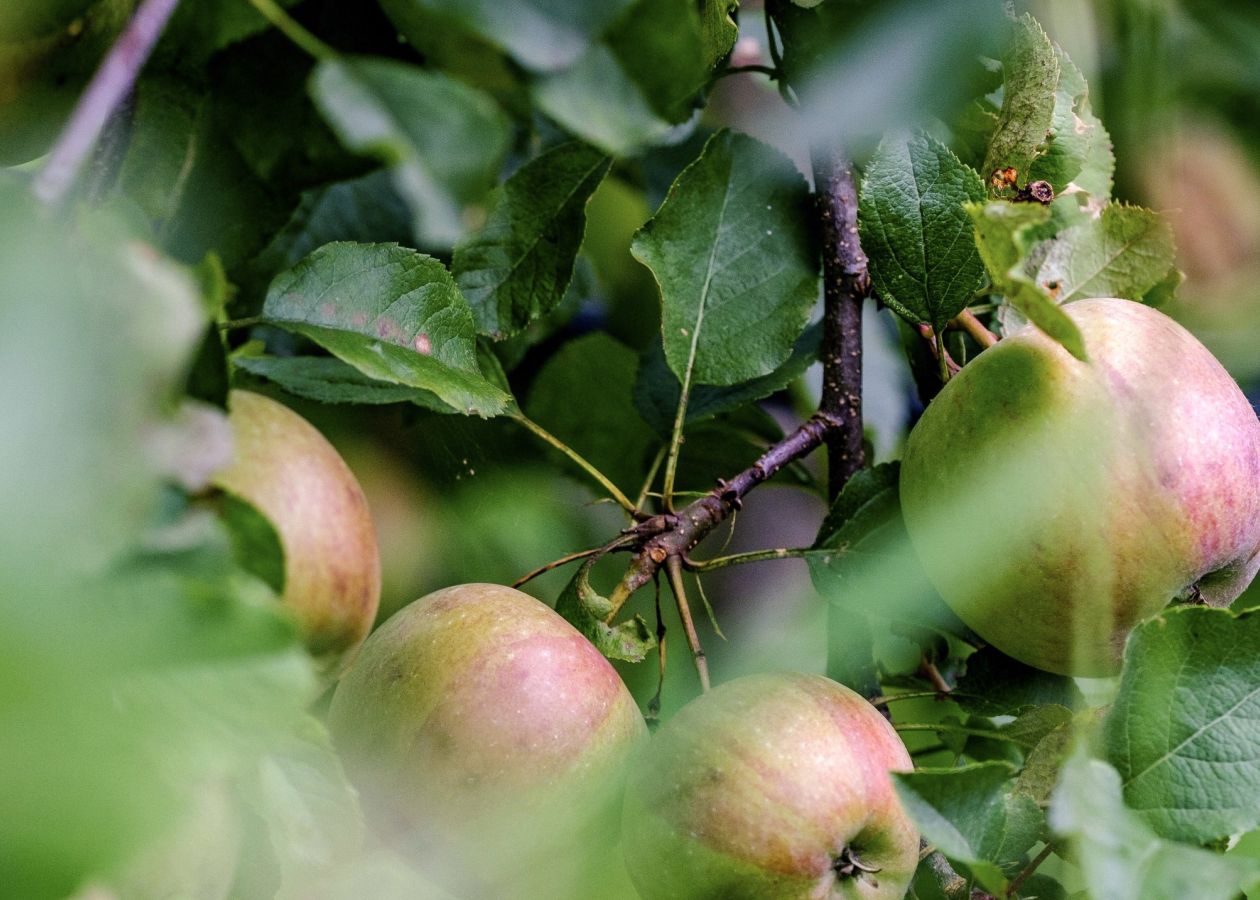

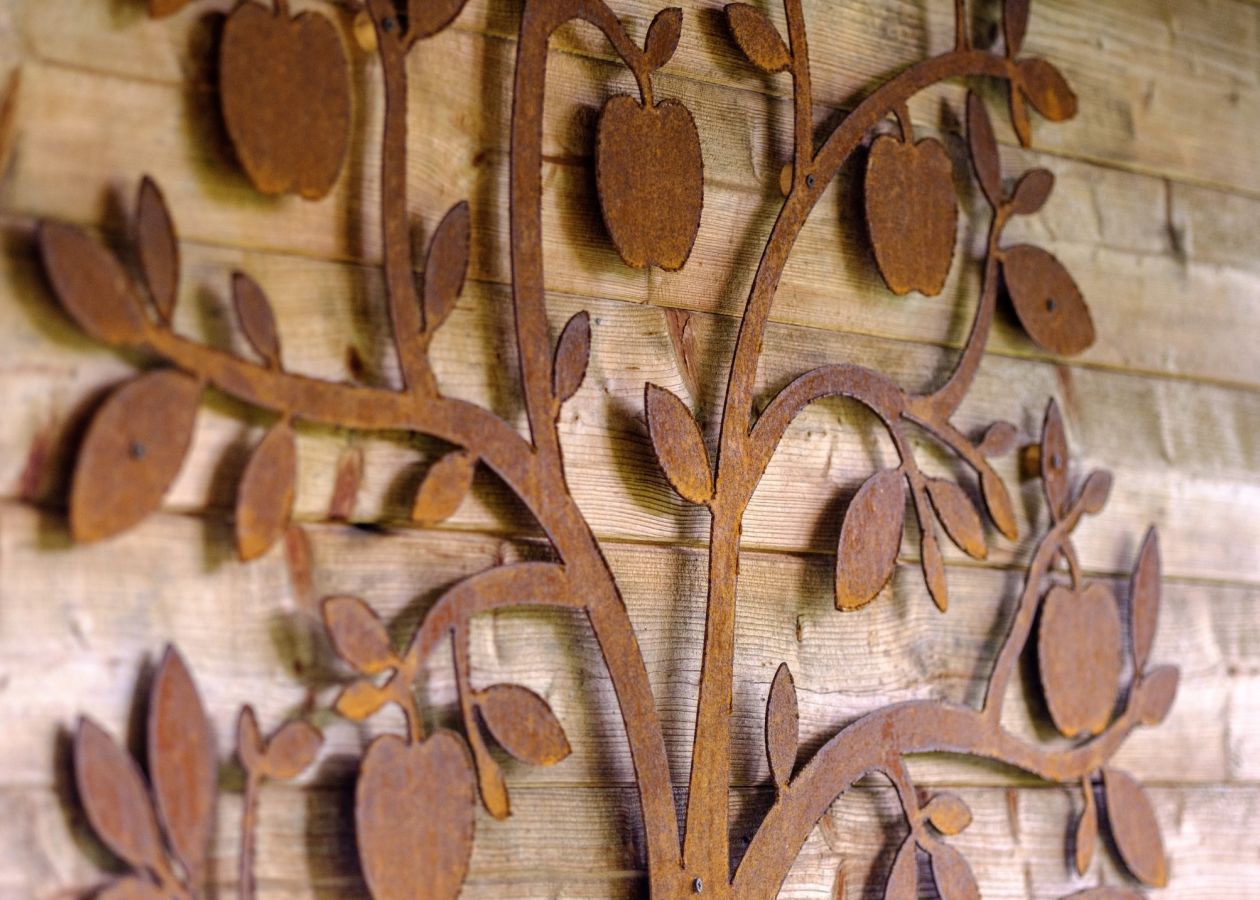
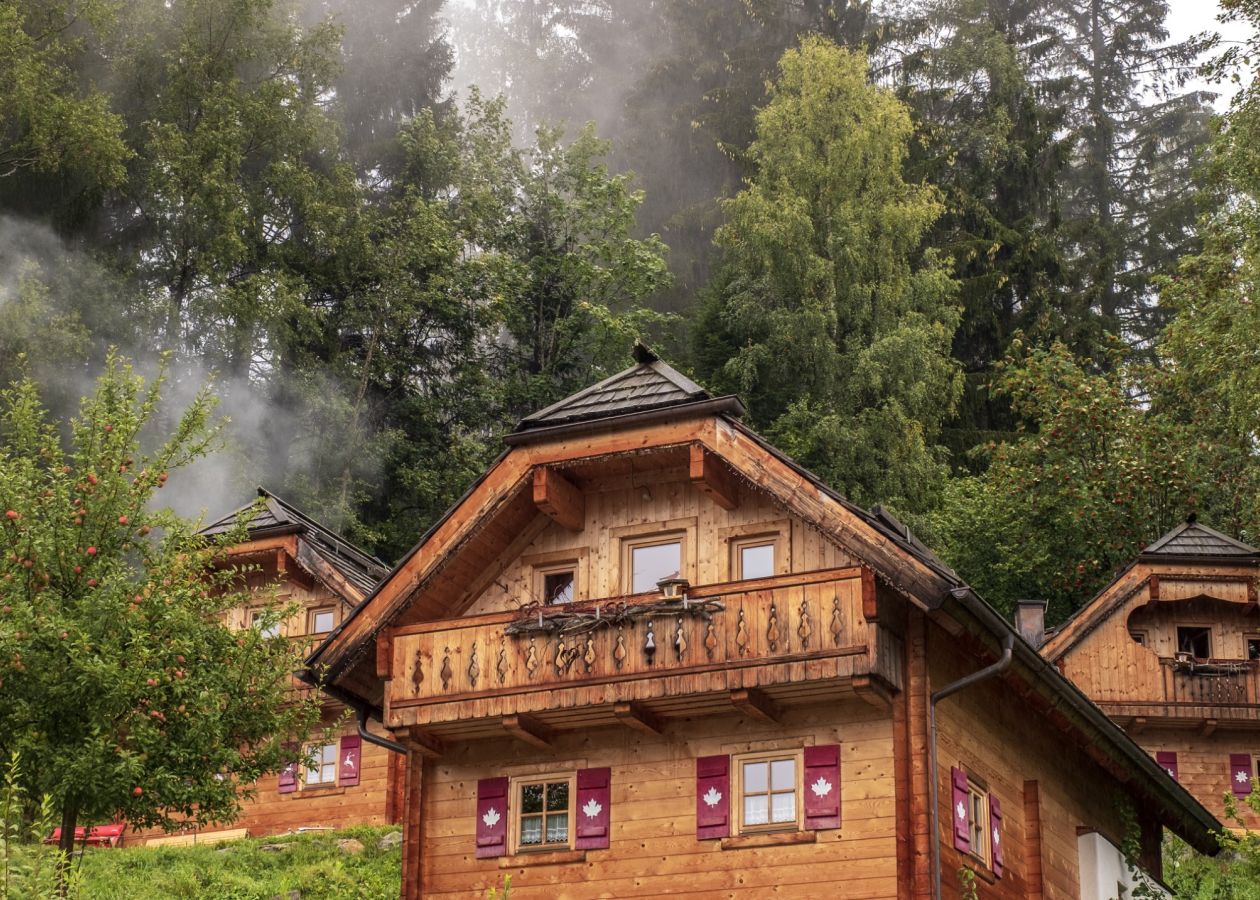
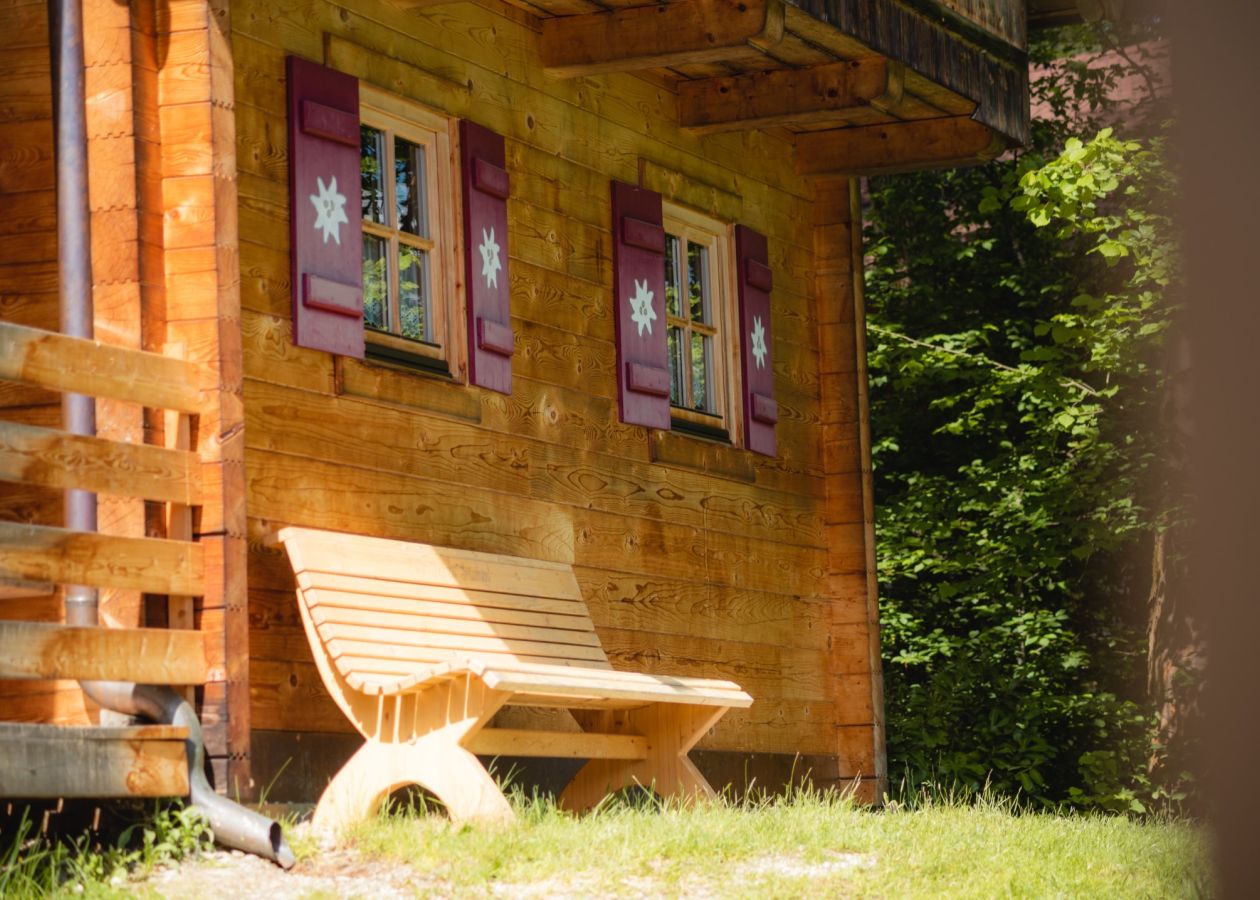
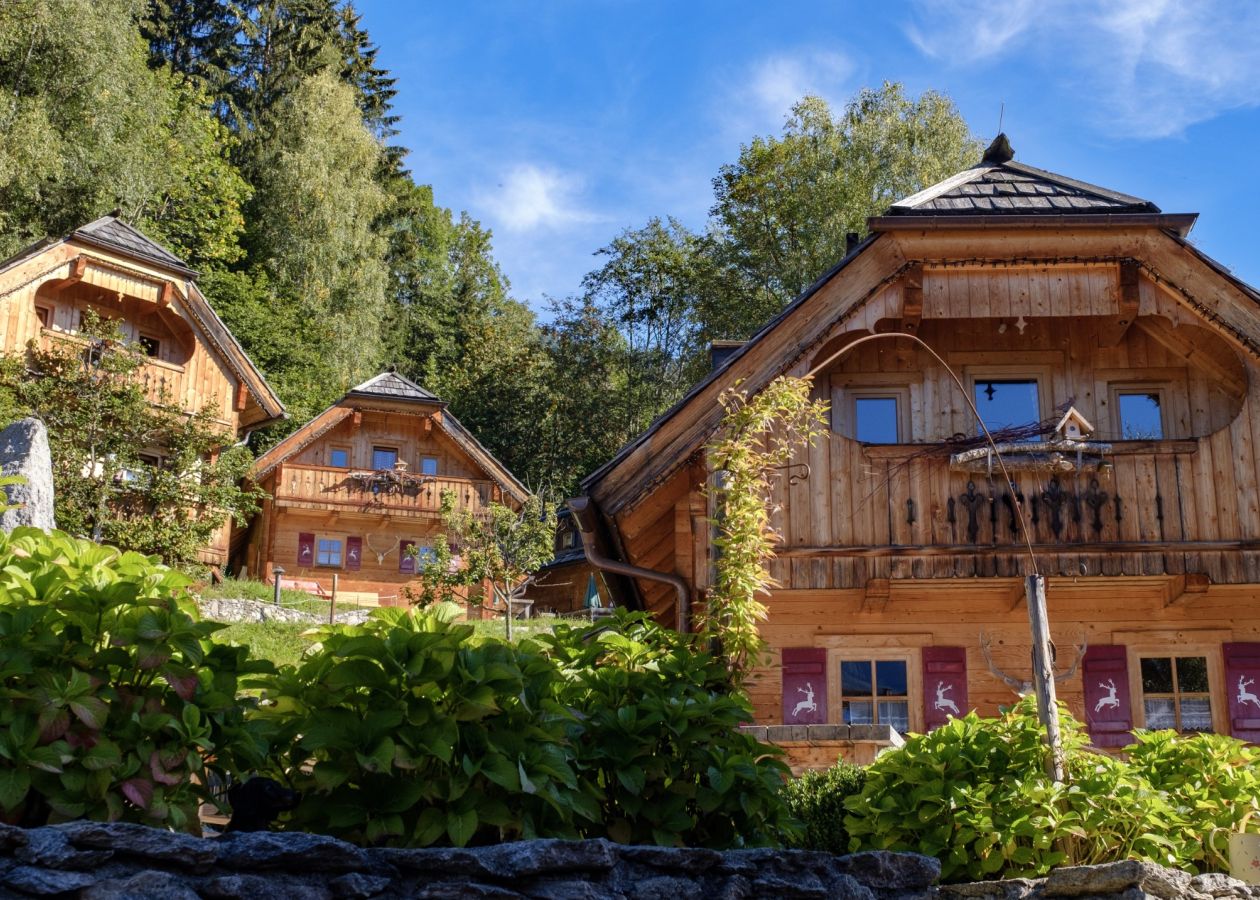


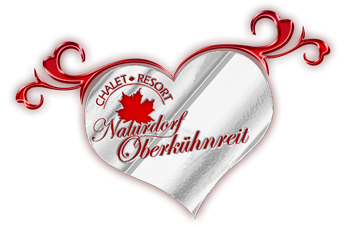
 Naturdorf Oberkühnreit
Naturdorf Oberkühnreit